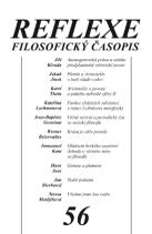Spinoza's "Tractatus Theologico-politicus": A historical and Comparative Study
In his Tractatus Theologico-Politicus Spinoza defends the ideas of Liberal Republicanism against those of Monarchism, yet at the same time he promotes the values of egality and democracy which even republicans considered to be too progressive at that time. His strategy is clearly visible on the level of philosophical ideas. Spinoza uses Hobbes's vocabulary and his theory of the social covenant in describing social genesis, but he also shows that the true nature of law and social powers is obscured by such a description. The law is not that of a sovereign (jus/potestas), but rather it is a power of every individual, be it a man or a state. Thus, jus is for Spinoza the same thing as potentia, and the analysis of social forces is substituted for the theory of a sovereign power. The concepts of potentia and jus also play a crucial role in Spinoza's Ethics. Potentia is at the core of his definition of essence and jus appears in his definition of freedom as autonomy (esse sui juris). This makes clear that Ethics a Tractatus Theologico-Politicus cannot be read separately and that there is no essential difference between philosophy and politics. In both types of texts Spinoza elaborates the same political ontology of power.
Backlinks: Reflexe 30
